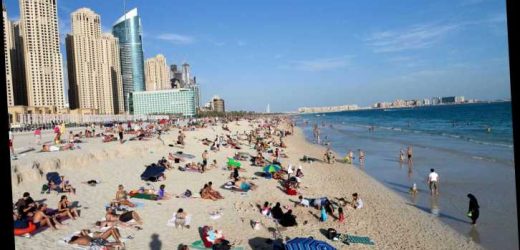DUBAI has been added to the UK's 'red list,' meaning all travel is banned excluding UK nationals returning to the country from tomorrow.
British nationals will have to quarantine for ten days back in the UK – but will NOT have to do it at a hotel yet, as the new scheme is not yet enforced.
The UAE, along with Burundi and Rwanda, are in addition to the 30 countries also on the red list, which includes Portugal, as well as South American and South African nations.
When the quarantine hotel restrictions are in place – expected to be from February 8 – all 33 countries on the high risk list will have to pay to self-isolate at a government-approved hotel for 10 days.
Transport Secretary Grant Shapps said: "From tomorrow (Friday 29 Jan at 1pm), we’re extending our travel ban with the United Arab Emirates, Burundi and Rwanda all added to the UK's red list."
However, he added: "This means people who have been in or transited through these countries will be denied entry, except British, Irish and third country nationals with residence rights who must self-isolate for ten days at HOME.
"Passengers must still have proof of a negative test and completed Passenger Locator Form before arrival – or could otherwise face a £500 fine for each."
Full list of countries requiring hotel quarantine
- Angola
- Argentina
- Bolivia
- Botswana
- Burundi
- Brazil
- Cape Verde
- Chile
- Colombia
- Democratic Republic of Congo
- Ecuador
- Eswatini
- French Guiana
- Guyana
- Lesotho
- Malawi
- Mauritius
- Mozambique
- Namibia
- Panama
- Paraguay
- Peru
- Portugal (including Madeira and the Azores)
- Rwanda
- Seychelles
- South Africa
- Suriname
- Tanzania
- UAE
- Uruguay
- Venezuela
- Zambia
- Zimbabwe
There will also be a flight ban on direct passenger flights from the UAE.
The decision to ban travel from the three destinations is due to the new South African coronavirus variant.
Influencer-hotspot Dubai has seen a jump in cases recently – the UAE has seen 249.7 cases per 100,000 cumulatively over the last seven days while the UK, in comparison, has seen 377.4 cases cumulatively over the last seven days.
The UAE has been forced to introduce stricter travel rules and measures after a spike in cases, which many have accused UK tourists, in particular social media influencers, of playing a part in.
Further details for the quarantine hotels such as the date they will begin and the cost are yet to be revealed.
PC Agency's Paul Charles said: "Possible date for start of hotel quarantine being mooted as Monday 8th February."
Prices could range from £600 to £1,600 for the ten days, with the most expensive price being similar to Australia's scheme.
It isn't the only travel restriction holidaymakers now face – most destinations require a negative coronavirus test on arrival.
All UK travellers must also have a negative coronavirus test when returning, along with a Passenger Locator Form.
Anyone not on the hotel quarantine list must still self-isolate for 10 days – or just five if taking a second negative coronavirus test – but can do so at their own house.
Travellers who are forced to stay at a quarantine hotel will be "transported directly" from the airport, Prime Minister Boris Johnson explained.
Chief executive of Best Western hotels group Rob Paterson said that hotels could see guests confined to their rooms, with no visitors and with three meals delivered every day to the doors.
He said: "From the hotels' perspective, we would have to treat each of these customers as Covid-positive, so we would have to have strong infection control and protocols around security in the hotel to ensure we can deliver safely.
"We deliver three meals per day to the door which the occupant comes out and collects those meals and then cleaning is clean sheets and towels waiting outside the room for the person to safely dispose of their previous sheets and change their own to keep the safety and infection protocols high."
He said the whole experience would be "highly contactless and quite sterile" with dirty laundry left in bags, separate from the rest of the linens and clothes.
Other restrictions could include CCTV and rooms supervised by private security guards.
Source: Read Full Article





